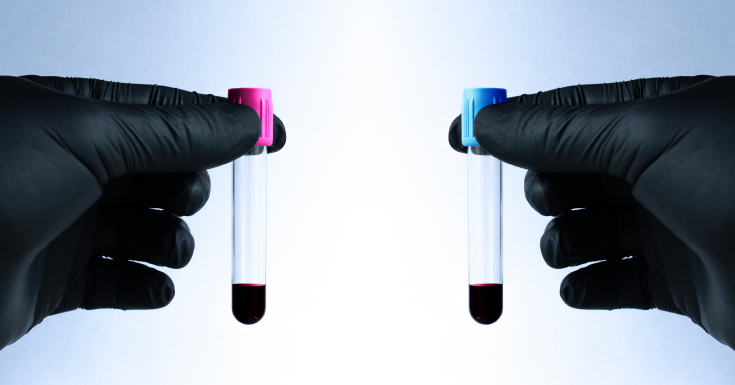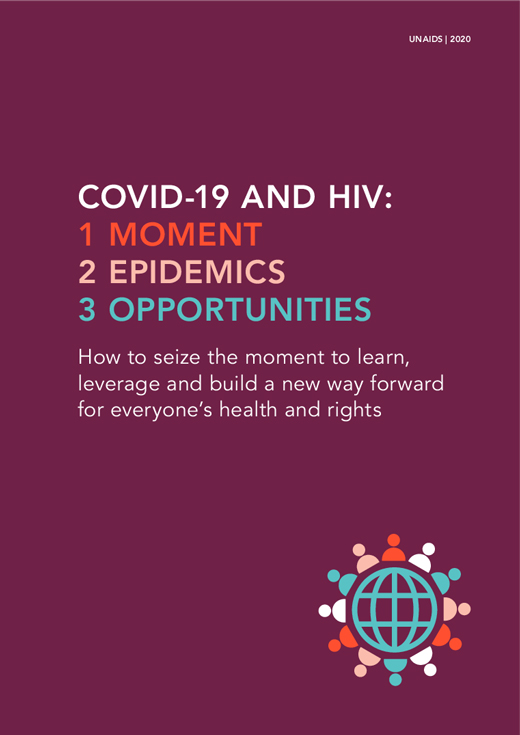A new report from UNAIDS shows how countries grappling with COVID-19 are using the experience and infrastructure from the AIDS response to ensure a more robust response to both pandemics. The report, “COVID-19 and HIV: 1 moment, 2 epidemics, 3 opportunities—how to seize the moment to learn, leverage and build a new way forward for everyone’s health and rights” shows that by identifying the dynamic changes needed, systems can be found that are effective, inclusive, equitable and sufficiently resourced.
“Given the epic dimensions of the emergency, the world needs unity and solidarity,” said United Nations Secretary-General António Guterres. “Our decades-long fight against HIV offers essential lessons. By heeding those lessons and working together, we can ensure that national health responses deliver on the promise of the 2030 Agenda for Sustainable Development and the health and well-being of all.”
The three opportunities highlighted in the report are: (1) that key lessons learned from the HIV response should inform COVID-19 responses; (2) how the HIV infrastructure is already driving COVID-19 responses and has the potential to catalyse accelerated progress; and (3) how the COVID-19 and HIV responses offer a historic opportunity to build a bridge to adaptable, results-driven systems for health that work for people.
“This is a unique opportunity to reimagine systems for health,” said Winnie Byanyima, Executive Director of UNAIDS. “All eyes are on health, health systems and health care, with countries wanting to be better equipped to deal not only with COVID-19 but also to create healthier, more resilient societies. We can seize this opportunity by learning from HIV and from COVID-19 to make important changes to develop rights-based, equitable, people-centred systems for health.”
Systems for health in the future must be prepared to address any new major health crisis by being agile, results-driven, inclusive, and people-centred. COVID-19 and the response to HIV should be used as an opportunity to reimagine systems for health that work for people, maximize efficiency and effectiveness, attract sufficient resources, and engage communities as essential partners for health.
You can download a copy of the report at https://www.unaids.org/en/resources/documents/2020/20200909_lessons_hiv_covid
Article by UNAIDS, www.unaids.org
ABOUT UNAIDS
The Joint United Nations Programme on HIV/AIDS (UNAIDS) leads and inspires the world to achieve its shared vision of zero new HIV infections, zero discrimination and zero AIDS-related deaths. UNAIDS unites the efforts of 11 UN organizations—UNHCR, UNICEF, WFP, UNDP, UNFPA, UNODC, UN Women, ILO, UNESCO, WHO and the World Bank—and works closely with global and national partners towards ending the AIDS epidemic by 2030 as part of the Sustainable Development Goals.

















